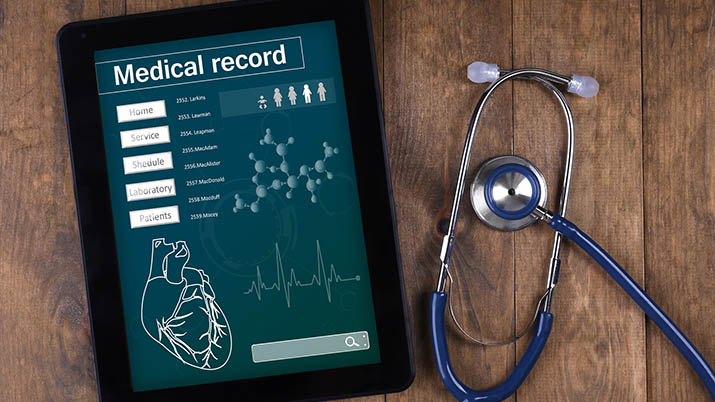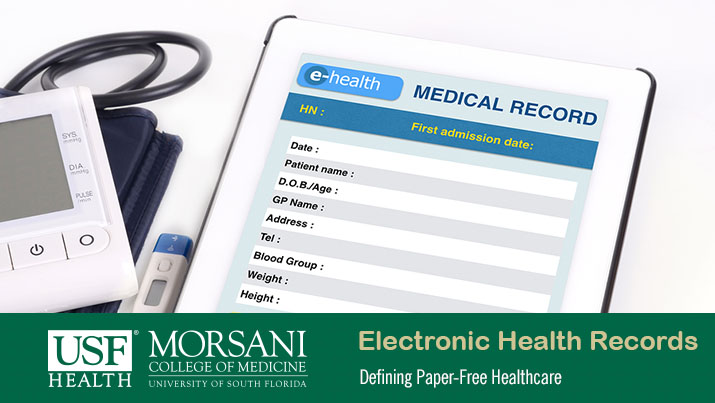12 Advantages And Disadvantages Of Electronic Health Records
Ehr (electronic health record) should not be confused with emr (electronic medical record) software, as ehr is a more broad-based platform for dealing with all aspects of administrating patient. The electronic health record, or ehr, is the system used by our physicians, nurses and other staff to improve access to your medical history and list of medications. the ehr replaces the paper or hard copy medical chart with computerized records, adding many new capabilities to improve the care you receive, including electronic prescribing and.
Va Ehr Modernization Home
U S Grants 1 2 Billion For Electronic Health Records

How To Access Your Medical Records
Electronicmedicalrecords. electronicmedicalrecords (emrs) are digital versions of the paper charts in clinician offices, clinics, and hospitals. emrs contain notes and information collected by and electronic health/medical records for the clinicians in that office, clinic, or hospital and are mostly used by providers for diagnosis and treatment. Reporting on the safe use of health information technology (health it) especially the use of electronic health records (ehrs) continues to be a challenge to many healthcare providers. while health it adoption has increased significantly ( as of 2015, 96 percent of hospitals and 78 percent of office-based physicians had certified ehrs ), usability and the ease-of-reporting concerns remain.
Figure. electronic health records (ehrs) are consistently used by external organizations to track the quality of care provided based on the information documented in the medical record, which affects hospital accreditation and reimbursement. 1 however, there's concern that technology may cause some patients to feel as if nurses and other practitioners are documenting for the institution. may also be generated from a physician’s electronic health record on november 1, i contacted palmetto gba through An electronic health record (ehr) is a digital version of a patient’s paper chart. ehrs are real-time, patient-centered records that make information available instantly and securely to authorized users. while an ehr does contain the medical and treatment histories of patients, an ehr system is built to go beyond standard clinical data collected in a provider’s office and can be inclusive of a broader view of a patient’s care.
Electronic health records (ehrs) and patient work information electronic health records (ehrs) have replaced paper medical records in most medical environments, but ehrs typically do not contain information about a patient’s work history. work history is considered a social determinant of health (sdoh). Electronic medicalrecord (emr) systems, defined as "an electronic record of health-related information on an individual that can be created, gathered, managed, and consulted by authorized clinicians and staff within one health care organization," have the potential to provide substantial benefits to physicians, clinic practices, and health. An electronic health record (ehr) is the systematized collection of patient and population electronically stored health information in a digital format. these records can be shared across different health care settings. records are shared through network-connected, enterprise-wide information systems or other information networks and exchanges. ehrs may include a range of data, including.
The Electronic Health Record And Patientcentered Care
To be useful for research on small populations, ehrs much include information identifying individuals as fitting into those populations, as well as information about their health and health care. for example, even if members of an asian sub. Onerecord, a cross device health platform with apps on ios, android, and web is now publicly available on athenahealth® marketplace. View student reviews, rankings, reputation for the online certificate in electronic health records from grantham university explore the grantham university online certificate in electronic health records. this industry-specific program, des.

An electronic health record (ehr) is an electronic version of a patients medical history, that is maintained by the provider over time, and may include all of the key administrative clinical data relevant to that persons care under a particular provider, including demographics, progress notes, problems, medications, vital signs, past medical. By debra sherman sections show more follow today by debra sherman the u. s. government announced grants of almost $1. 2 billion on thursday to help hospitals and health care providers establish and use electronic health records. the grants in.
7966 products & services custom development and project implementation electronic health record & billing applications accucare ehr faqs outsource billing services and implementation: caadpac customer support orion healthcare blog electronic health record 101 faqs electronic health record faqs outsourced billing Electronic health records analysis of third global survey on ehealth based on the reported data by countries, 2016 key findings from the reported data: there has been steady growth in the adoption of national electronic health record (ehr) systems over the past 15 years and a 46% global increase in the past five years.
Many health institutions digitally store their patients' health information. learn about electronic health records (ehrs) and how they can improve health care. most u. s. hospitals, doctors' offices, and medical centers store health informat. Learn everything you need to know about emr software before purchasing. connect with an advisor now simplify your software search in just 15 minutes. call us today for a fast, free consultation. for free software advice, call us now! +1 512. Electronic health records (ehrs) have replaced paper medicalrecords in most medical environments, but ehrs typically do not contain information about a patient’s work history. work history is considered a social determinant of health (sdoh). including patient work history in ehrs and other health information systems can help healthcare.
Advantages of electronic health records. ehrs and the ability to exchange health information electronically can help you provide higher quality and safer care for patients while creating tangible enhancements for your organization. ehrs help providers better manage care for patients and provide better health care by: providing accurate, up-to-date, and complete information about patients at. Source: percentage of office-based physicians using any electronic health record (ehr)/electronic medical record (emr) system and physicians that have a certified ehr/emr system, by u. s. state: national electronic health records survey, 2017 pdf icon [pdf 371 kb]. Electronic medical record implementation will allow your health records to be in one digital file. learn about electronic medical record implementation. advertisement schoolchildren in the united states are often threatened with an ominous-.
Electronic medical records/electronic health records (emrs/ehrs) minus. related pages. data are for the u. s. percent of office-based physicians using any emr/ehr system: 85. 9%. percent of office-based physicians with a certified electronic health/medical records emr/ehr system: 79. 7%. source: percentage of office-based physicians using any electronic health record (ehr)/electronic medical record (emr) system and physicians that have a certified ehr/emr system, by u. s. state: national electronic health records survey, 2017. In that regard, emrs are not much better than a paper record. electronic health records (ehrs) do all those things—and more. ehrs focus on the total health of the patient—going beyond standard clinical data collected in the provider’s office and inclusive of a broader view on a patient’s care.
An electronic health record (ehr) is an electronic version of a patients medical history, that is maintained by the provider over time, and may include all of the key administrative clinical data relevant to that persons care under a particular provider, electronic health/medical records including demographics, progress notes, problems, medications, vital signs, past medical history, immunizations, laboratory data and radiology reports the ehr automates access to information and has the potential to streamline the clinician.
Electronic health & medical records. electronic health & medical records. reducing the clinician burden: shaping health it as an asset. andrew gettinger march 4, 2021. health it has helped drive progress in health care over the last decade, but it has also introduced a variety of different challenges, many reported by the clinical community. Whether you're interested in reviewing information doctors have collected about you or you need to verify a specific component of a past treatment, it can be important to gain access to your medical records online. this guide shows you how.
The new system connects va medical facilities with the department of defense, the u. s. coast guard and participating community care providers, allowing clinicians to easily access a veteran’s full medical history in one location. va’s office of electronic health record modernization (oehrm) manages deployment of the new system. The electronic health record (erc) can be viewed by many simultaneously and utilizes a host of information technology tools. patients routinely review their electronic medical records and are keeping personal health records (phr), which contain clinical documentation about their diagnoses (from the physician or health care websites).

